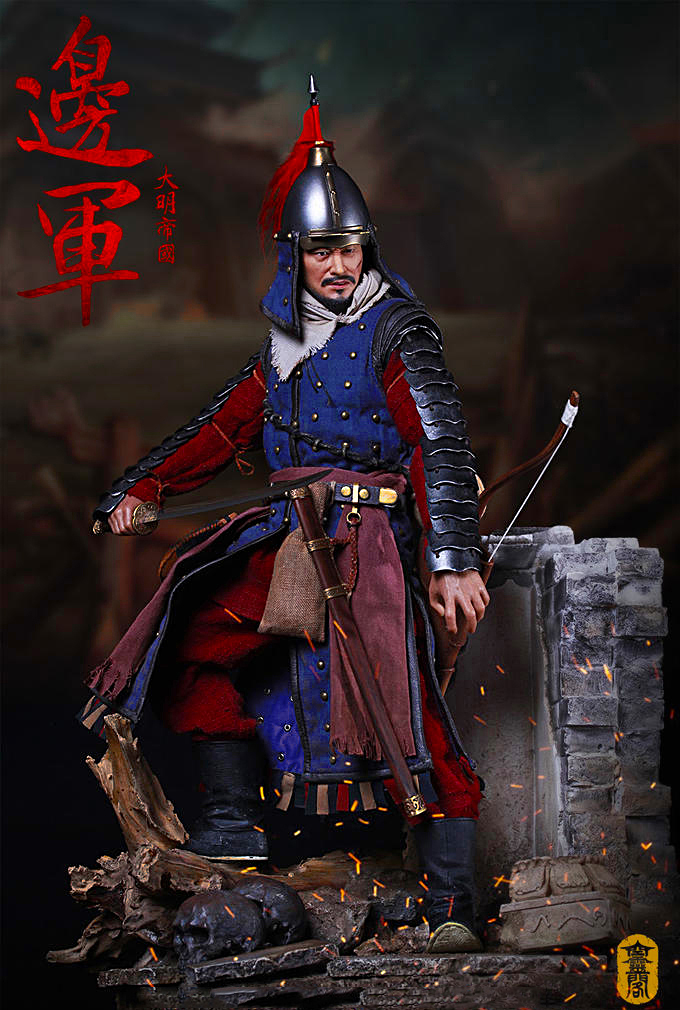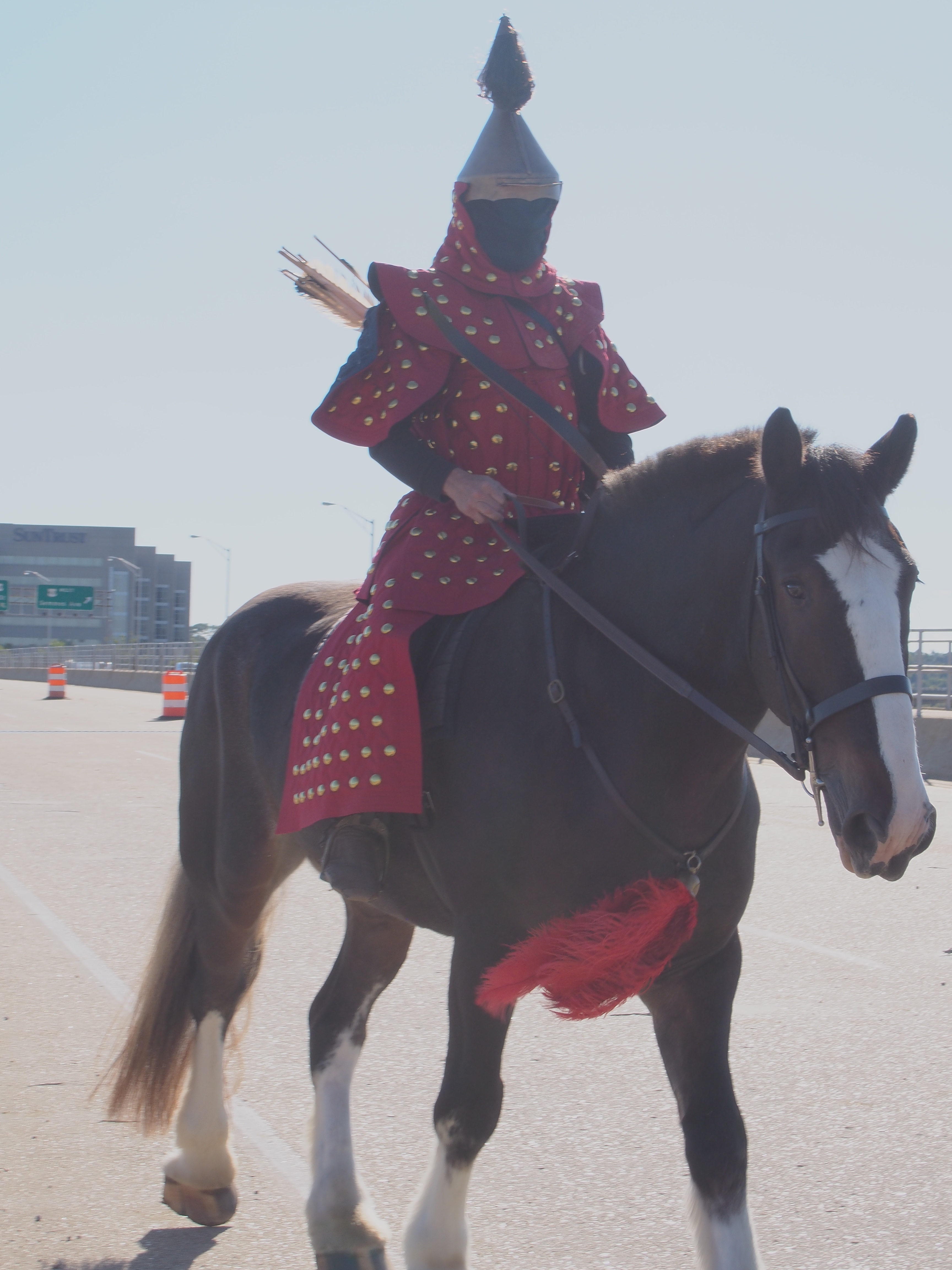
Pin on Character Study
Lin Siniang: Female Chinese Warrior of the Ming Dynasty BR Williams Updated: Nov 5, 2023 5:23 PM EST Chinese warriors Female Chinese Warriors in History In the United States and Europe, many people have heard of the Chinese warrior princess Mulan—either from the 1998 Disney animated film or from the 2020 Disney live-action film.

Ming dynasty warrior Chinese armor, Warrior, Chinese armor ancient
The Ming Dynasty started to decline during his reign. Emperor Zhengde (ruled 1572-1620) was the longest reigning emperor of the Ming Dynasty (48 years). Emperor Chongzhen (ruled 1627-1644) was the last emperor of the Ming Dynasty. 13 out of the 16 emperors of the Ming Dynasty were buried in the Ming Tombs near Beijing. It is the largest.

Chinese Ming Dynasty Warrior Chinese armor, Armor concept, Dynasty warriors
Map of the Ming Empire c. 1580 (Michal Klajban, CC BY-SA 3.0) After nearly a hundred years of Mongol rule, China returned to native rulership in the Ming dynasty (1368-1644). The Ming was founded by a commoner, Zhu Yuanzhang (1328-1398), who established Nanjing as his capital. However, nearly fifty years later, the third Ming emperor.

Ming dynasty warrior Dynasty warriors, Historical clothing, Chinese armor
The Chinese Ming Dynasty Military: Warfare, Army & Weapons Ming Dynasty Military During the Ming Dynasty, soldiers had one of the lowest social standings. Unlike the western armies, a soldier in the Ming Dynasty military was an inherited job and they came from a professional warrior class.

UNIT. Ming Frontier Troops 明邊軍
Introduction. The Ming dynasty (1368-1644) arose following a series of natural disasters that hit China during the early and middle 1300s, adding to the misery of a people under the harsh rule of the Mongol Yuan dynasty (1279-1368). In 1368 rebel armies—led by Zhu Yuanzhang (1328-1398)—overthrew the Yuan, and Zhu established a dynasty.

大明武士 Chinese Ming dynasty warrior Dynasty warriors, Chinese warrior, Warrior
Get the Latest Version of Dynasty Warriors on Your PC!

Chinese Ming Dynasty Warrior Chinese armor, Dynasty warriors, Warrior
Ming dynasty, (1368-1644) Chinese dynasty that provided an interval of native rule between eras of Mongol and Manchu dominance. The Ming, one of the most stable but autocratic of dynasties, extended Chinese influence farther than did any other native rulers of China. Under the Ming, the capital of China was moved from Nanjing to Beijing, and.

Ming dynasty heavy infantry, guard troops. Imperial guards are similarly armed. These heavy
Collapse of Mongol Rule The Ming dynasty was established following the collapse of the Mongol rule of China, known as the Yuan dynasty (1271-1368). The Yuan had been beset by famines, plagues, floods, widespread banditry, and peasant uprisings.

Chinese Ming dynasty standard brigandine armor Chinese armor, Historical armor, Chinese warrior
The Ming Dynasty ruled China from A.D. 1368 to 1644, during which China's population would double. Known for its trade expansion to the outside world that established cultural ties with the West,.

Ming Dynasty Warrior Costume Virginia Museum of Fine Art
In the 16th century, the Ming dynasty sent ethnic Chinese to settle in the tribal areas of the Hmong and other indigenous tribes in the southwest. The Ming sent 2000 garrison troops to defeat the Hmong rebels, and 40,000 rebels were slaughtered.

Chinese Ming dynasty warrior Dynasty warriors, Chinese armor, Ancient warfare
The Ming dynasty ( / mɪŋ / MING ), [7] officially the Great Ming, was an imperial dynasty of China, ruling from 1368 to 1644 following the collapse of the Mongol -led Yuan dynasty. The Ming dynasty was the last imperial dynasty of China ruled by the Han Chinese people, the majority ethnic group in China.

How do the early Ming army and the late Ming army generally differed in terms of weaponry and
The military of the Ming dynasty was the military apparatus of China from 1368 to 1644. It was founded in 1368 during the Red Turban Rebellion by Zhu Yuanzhang (Hongwu Emperor). The military was initially organised along largely hereditary lines and soldiers were meant to serve in self-sufficient agricultural communities.

Pin on Knights, musketeers and other warriors
The Ming was founded by a commoner, Zhu Yuanzhang (1328-1398), who established Nanjing as his capital. However, nearly fifty years later, the third Ming emperor relocated the capital to Beijing, which has remained China's main seat of government ever since. The Ming dynasty's almost three hundred-year span witnessed unprecedented economic and.

The Ming dynasty was a dynasty of China that existed from 1368 to 1644, succeeding the Mongol -led Yuan dynasty and falling amidst much political turmoil to the short-lived Shun dynasty. Sixteen emperors ruled over the whole of China proper spanning 276 years.

Jin's 進 May 2012
2 Government 3 Exploration to Isolation 4 Ming Military Conquests 5 Agricultural Revolution 6 Commerce Revolution 7 The Ming Code 8 Scrapping The Prime Minister Post 9 Decline of the Ming 10 Building the Great Wall 11 The Network of Secret Agents 12 Fall of the Ming Dynasty 13 Notes 14 References 15 External Links 16 Credits

Chinese Armor, Warrior Outfit, Larp Armor, Armadura Medieval, Tibet, Dynasty Warriors, Armor
The Ming were also the only ethnically Han Chinese family to rule the empire between 1270 and the end of the imperial system in 1911. This list includes the Ming emperors' given names and their reign-names, as well as their years in power. Zhu Yuanzhang, the Hongwu Emperor, 1368-1398. Zhu Yunwen, the Jianwen Emperor, 1398-1402.